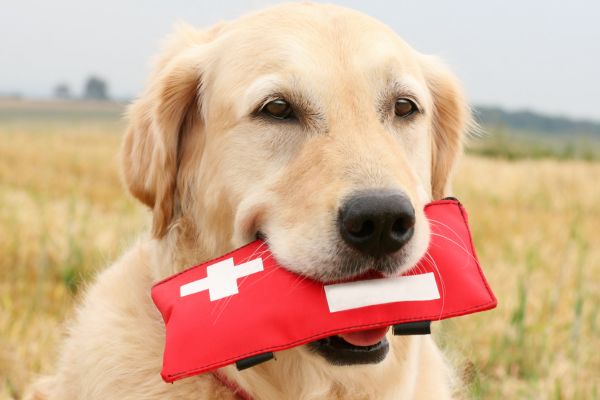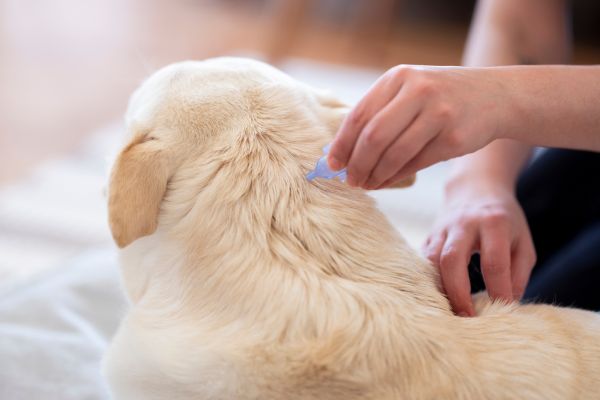It is not easy to get into veterinary school. Even if you have all the prerequisites met and maintained a high undergraduate GPA, the top Doctor of Veterinary Medicine programs (DMVM) look for applicants who are well-rounded and committed to the field.
A substantial amount of experience in veterinary work is a great way to achieve this. Many applicants are shocked to discover that their resumes do not include any animal-related information. This is because there are distinct differences between veterinary and animal experience. We will be sharing some tips and tricks to help you get veterinary experience to support your DVM applications.
Comparing animal experience with veterinary experience
While it is important to have meaningful experiences in your veterinary school applications, it is also worth noting the differences between animal experience and veterinarian experience. We reached out to Dr. Brad Singleton from South Park Animal Hospital for clarification.
Dr. Singleton explained that animal experience is primarily about being around animals in a nonmedical manner, such as working at horse stables or dog kennels. He also mentioned that his pre-vet experience with animals included working at a nature centre.
However, veterinary experience must be under the guidance of a veterinarian. Dr. Singleton explains that veterinary experience would include a veterinarian’s evaluation, diagnosis and treatment.
Veterinarian experience is more important than animal experience in most schools. This can give you an advantage when applying to a school. What experience do you need to get into vet school? Although programs may not require it, the expectation is that you will need between 500 and 1,000 hours of experience in veterinary medicine.
For more information on specific program recommendations, please don’t hesitate contacting the admissions department.
Here are 5 steps to gaining meaningful experience in veterinary work
Although it is obvious that pre-vet students need to have a lot of veterinary experience, it can be difficult to know where to begin. Dr. Singleton shares five tips to help you find and make the most of work experience before applying for vet school.
- Take into consideration a range of options
Pre-vet students naturally think of working alongside small-animal vets to get the experience they need for vet school. It’s important to remember that there are other options. Diversifying your veterinary experience can help you get a better understanding of what type of veterinary medicine is best for you.
Some veterinarians work with research animals while others inspect food production plants. Others work with exotic animals at zoos or aquariums. The majority of veterinary programs prefer applicants who have had exposure to multiple careers in veterinary medicine. Dr. Singleton believes that his unique resume was a major factor in his acceptance to vet school.
He explains that he spent time in a microbiological laboratory working with salmonella in aqua turtles. This has helped him to be more distinguishable. “I was working with non-traditional species and I was doing academic research.”
However, it’s fine to gain experience in a small clinic if that’s what you have the most access to. There are other options to make your application stand out if you’re worried about it. Dr. Singleton suggests the Fear Free Certification Program.
- Make use of your existing network
Start working with your pre-vet advisor if you are still in college to search for opportunities. You likely have a large network at your school. Some advisors maintain lists of internships and clinics that allow students to shadow vets.
Participating in the school’s prevet club, if applicable, is another great way of finding available positions. These groups are regularly involved in networking events and other experiences.
The American Pre-Veterinary Medical Association’s (APVMA-NS) National Symposium is a great event that pre-vet students can use to build their professional networks, and find valuable experiences. The annual symposium offers students the opportunity to meet representatives of different vet schools and attend a variety of seminars and labs. This is a great opportunity to meet people and expand your network.
- Ask around
There may be opportunities available for pre-vet experience. However, you should be ready to search out clinics and organizations that interest your interests and ask questions on your own. Dr. Singleton says that it is rare to find a comprehensive, centralized list of all places that offer veterinary experience. Ask an organization about what they have available.
Make sure that you have a strategy in place before reaching out. Your intention to attend veterinary school should be explained. Also, you should briefly explain why you are interested in working for the vet you are contacting. Prepare to provide a resume and answer questions about your career goals.
Dr. Singleton says, “Don’t let anyone turn you down.” “Just sell yourself harder next time.” Dr. Singleton also advises pre-vet students not to accept volunteer positions in for-profit companies. Unpaid work is not illegal, but employment and shadowing can be acceptable.
- Profit from every opportunity
After you have been offered a job, you should make the most of it by asking lots of questions. It is important to be flexible. Dr. Singleton was able to take part in wildlife releases. This required some weekend and evening work. He says, “I had to give up some personal time, but was able to gain valuable experiences in return.”
You should also take notes as you go. You should keep track of your hours and note what you encounter as you gain more veterinary experience. A log can make it easier for you to summarize your experiences and to share what you learned during interviews.
Dr. Singleton suggests that you document dates, times and specific events as well as what was learned or the main focus of the project.
- Establish lasting relationships
Be sure to thank your veterinarians for allowing you to do pre-vet work. While it is important to show your appreciation, it is also important to keep the professional connection.
It is possible that you will need to contact those who shadowed you or worked under to ask them to write a letter evaluating your application. A majority of veterinary medicine programs require that at least one letter is written by a licensed veterinarian.
If you are a positive influence, you might even be able to reconnect with former mentors when you search for work opportunities after earning your DVM. It can be very useful to have a strong and healthy professional network.


